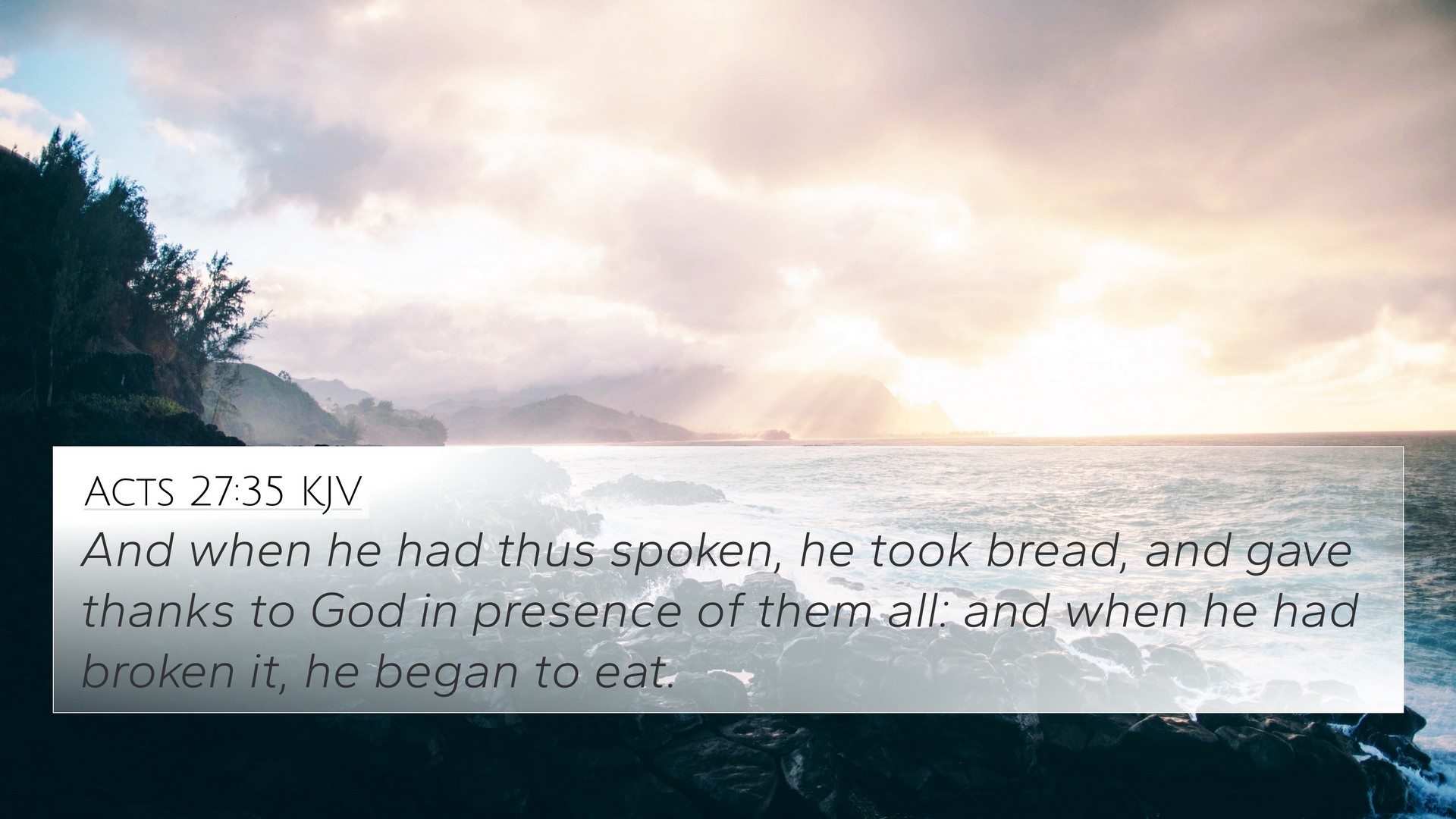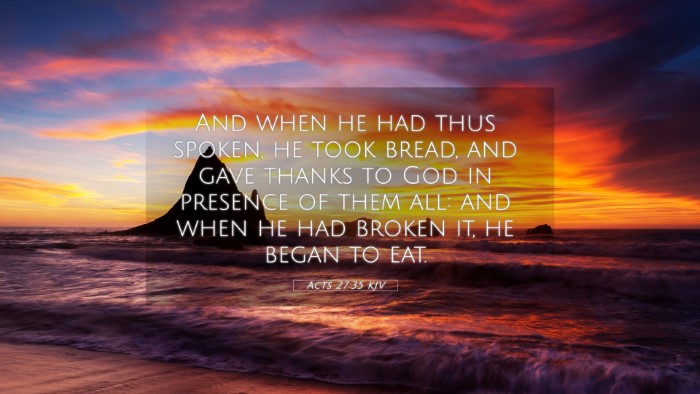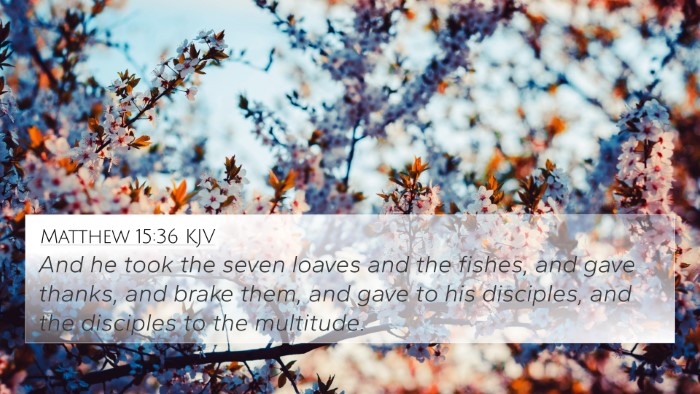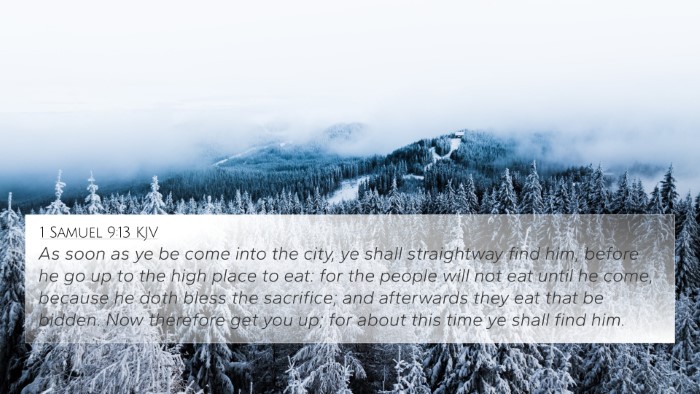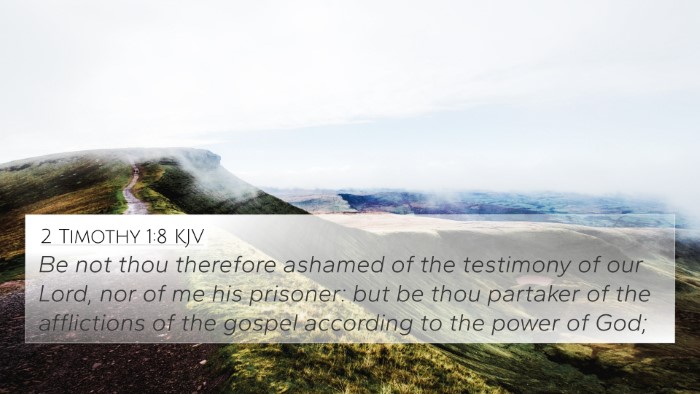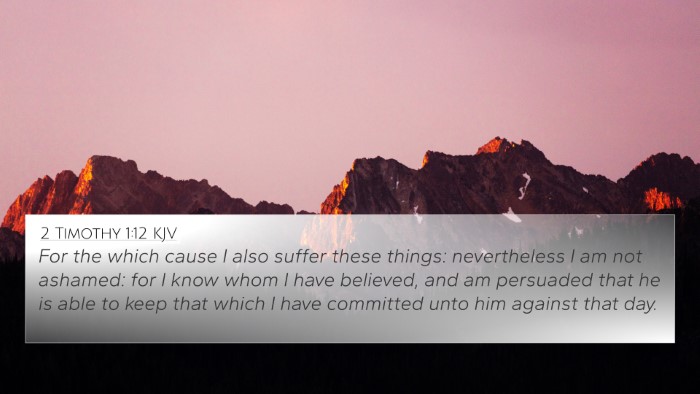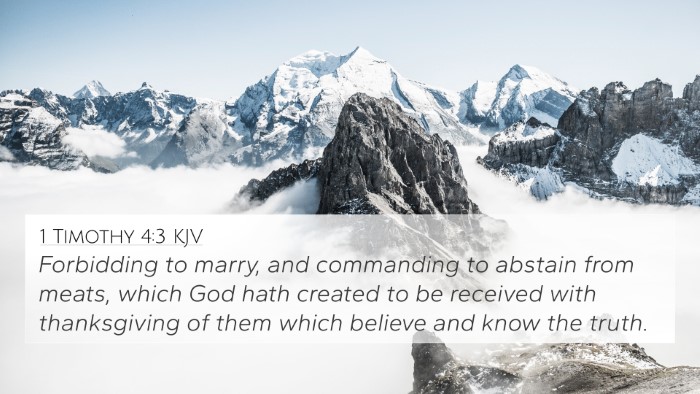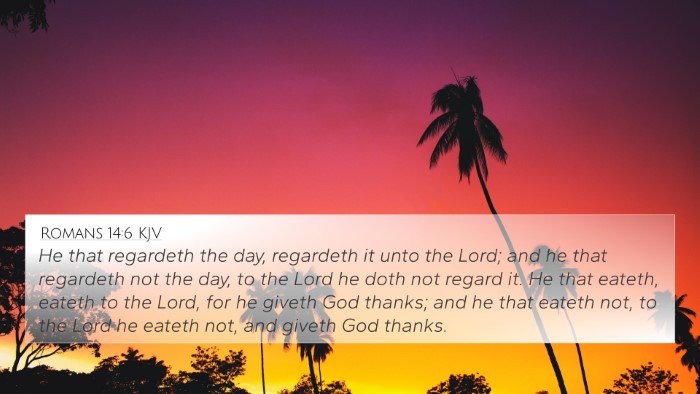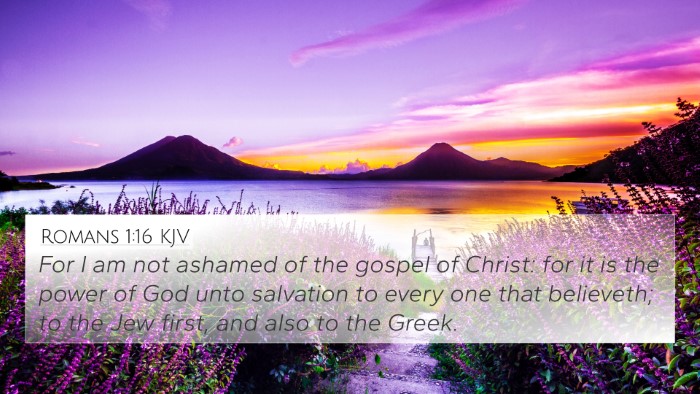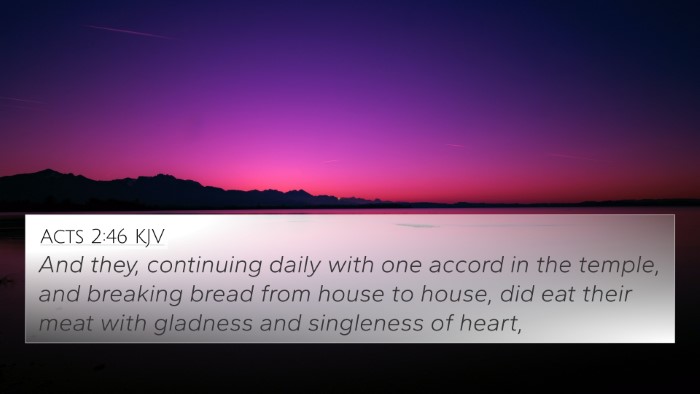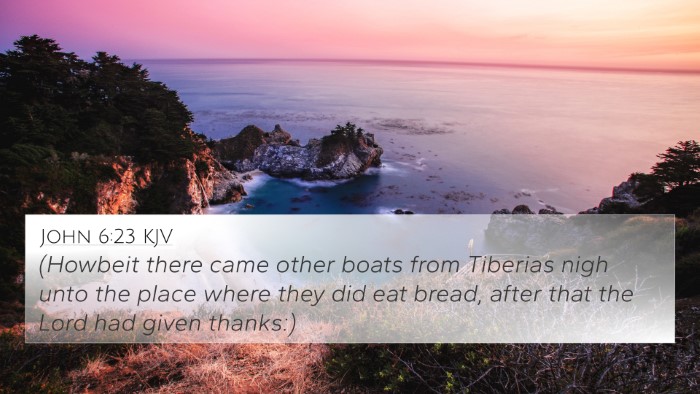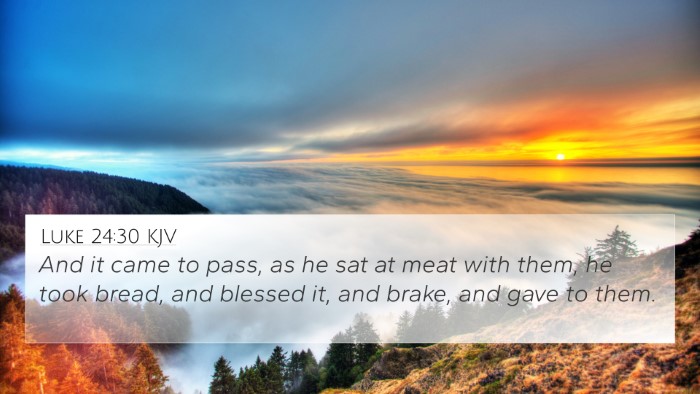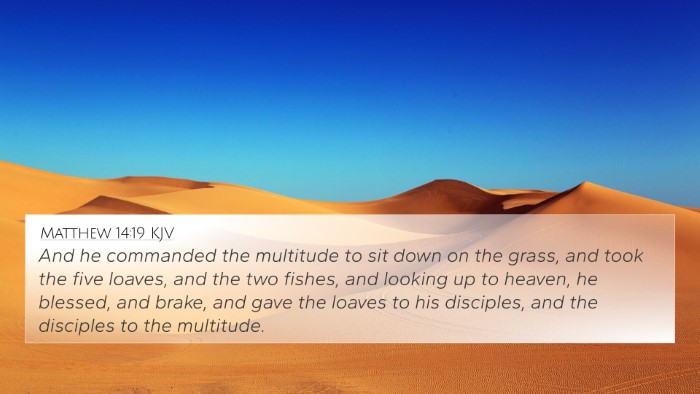Acts 27:35 states, "And when he had said these things, he took bread, and gave thanks to God in the presence of them all: and when he had broken it, he began to eat."
This verse arises in the context of Paul’s perilous journey to Rome, where a ship carrying him and other prisoners faced a great storm. In the midst of a dire situation, Paul encourages those aboard to take heart, reminding them of God’s promise of safety. Here, Paul demonstrates profound faith and leadership, reflecting a key theme in the narrative of his ministry.
Interpretation and Significance
The act of taking bread and giving thanks is illustrative of important Biblical principles—including gratitude, fellowship, and divine provision. This moment resembles the practice of breaking bread for communion, indicating a connection to early Christian traditions.
Insights from Commentaries
Matthew Henry emphasizes Paul’s leadership and faith amidst fear. He notes that the breaking of bread represents not only sustenance but also the deep spiritual nourishment found in communion with God and His community.
Albert Barnes highlights how this act symbolizes an acknowledgment of God’s provision. Paul, in giving thanks, reinforces the necessity of maintaining faith in God, even during trials, reflecting the essence of prayer and gratitude in difficult times.
Adam Clarke offers additional insight into the importance of community in sharing a meal, suggesting that this act promotes unity and strength among those in distress, encouraging them to trust in God’s promise of safety.
Related Bible Verses
Acts 27:35 can be cross-referenced with the following Bible verses that share similar themes of faith, provision, and communal support:
- 1 Thessalonians 5:18 - “In everything give thanks: for this is the will of God in Christ Jesus concerning you.”
- John 6:11 - “And Jesus took the loaves; and when he had given thanks, he distributed to the disciples, and the disciples to them that were set down; and likewise of the fishes as much as they would.”
- Luke 22:19 - “And he took bread, and gave thanks, and brake it, and gave unto them, saying, This is my body which is given for you: this do in remembrance of me.”
- Philippians 4:6 - “Be careful for nothing; but in every thing by prayer and supplication with thanksgiving let your requests be made known unto God.”
- Matthew 14:19 - “And he commanded the multitude to sit down on the grass, and took the five loaves, and the two fishes, and looking up to heaven, he blessed, and brake, and gave the loaves to his disciples, and the disciples to the multitude.”
- Acts 2:42 - “And they continued steadfastly in the apostles' doctrine and fellowship, and in breaking of bread, and in prayers.”
- Psalm 34:8 - “O taste and see that the Lord is good: blessed is the man that trusteth in him.”
Thematic Connections
The themes present in Acts 27:35 invite deeper exploration into the connections between Bible verses. Such connections allow for a greater understanding of the Scriptures' unified message. Here are some thematic Bible verse connections to consider:
- Gratitude and Faith – Acts 27:35 echoes the necessity of giving thanks, as highlighted in other texts such as Colossians 3:17 and 1 Chronicles 16:34.
- Divine Provision – Similar to Paul’s situation in the storm, Matthew 6:26 speaks to the assurance of God’s provision for His creation.
- Unity in Christ – The act of breaking bread signifies fellowship, as referenced in 1 Corinthians 10:16-17.
Conclusion
Acts 27:35 is a powerful reminder of God’s presence during life's storms and the importance of thanksgiving and communal support among believers. By engaging in cross-referencing Biblical texts, one can uncover profound insights that enrich the understanding of Scripture.
In conducting a Bible cross-reference study, tools such as a Bible concordance or cross-reference guides become indispensable resources in exploring the intricate weave of themes that run through the Bible, thereby highlighting the interconnectedness of its teachings.
